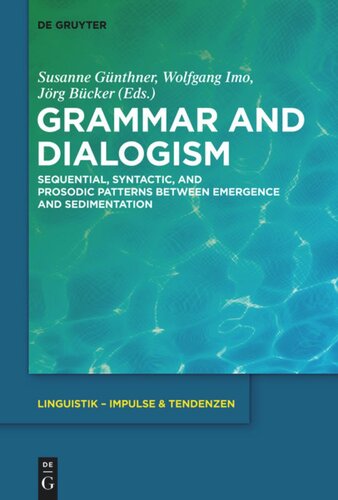

Most ebook files are in PDF format, so you can easily read them using various software such as Foxit Reader or directly on the Google Chrome browser.
Some ebook files are released by publishers in other formats such as .awz, .mobi, .epub, .fb2, etc. You may need to install specific software to read these formats on mobile/PC, such as Calibre.
Please read the tutorial at this link: https://ebookbell.com/faq
We offer FREE conversion to the popular formats you request; however, this may take some time. Therefore, right after payment, please email us, and we will try to provide the service as quickly as possible.
For some exceptional file formats or broken links (if any), please refrain from opening any disputes. Instead, email us first, and we will try to assist within a maximum of 6 hours.
EbookBell Team

4.8
24 reviewsThis volume aims at analyzing the relationship between the dialogical accomplishment of spoken talk-in-interaction on the one hand and entrenched patterns of linguistic and socio-cultural knowledge (constructions, frames, and communicative genres) on the other. The contributions analyze linguistic patterns in different languages such as English, French, German, and Swedish. Methodologically, they take up the usage-based position that structural and functional aspects of language use need to be studied empirically and "bottom-up": Since grammatical structure arises as the entrenched result of recurrent language use, its study should start with the local organization of natural talk-in-interaction before moving on to more complex and abstract relationships between linguistic structure, linguistic meaning, and socio-cultural activity/event patterns. Furthermore, they argue that Dialogism provides a promising starting point for a usage-based approach to linguistic patterns as both emerging (i.e. constructed in response to the situational circumstances of talk-in-interaction) and emergent (i.e. constructed with regard to symbolic units as parts of socially and culturally shared knowledge).